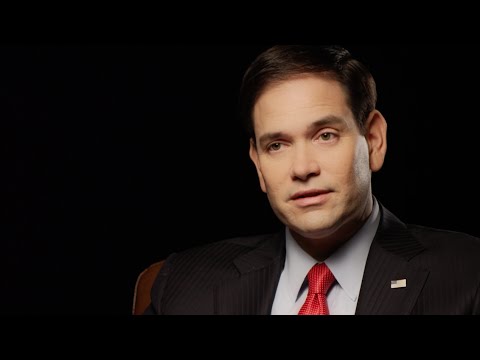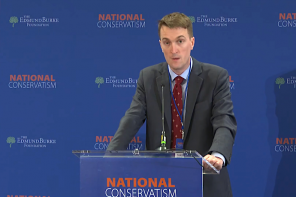Marco Rubio’s “Faith” evangelical outreach ad, which debuted in Iowa over the weekend, can be seen as confirmation of a trend that’s long been brewing in politics: the rise of Evangelical Catholics in the Republican Party.
As I noted in a new paper for the journal Religions, these Evangelical Catholics have been fueled by the emphasis of the Catholic bishops on voting for anti-abortion candidates, and more recently, supporters of their brand of “religious liberty.” And importantly:
… these Republican Catholics are markedly different from moderate, swing-vote Catholics who have been so important to presidential aspirations since the 1970s. These Catholics marry strong support for orthodox Catholic social teaching on moral issues, particularly abortion, with equally strong support for Republican free-market economic policies. Many of these conservative Catholics, especially those in the public eye, have become more outspoken in asserting a “gospel-centered”, biblical morality in the public square as central to their Catholicism. This is a departure from more conventional notions of Catholicism that focus on private religious practice and charitable works.
Rubio’s ad falls squarely into this camp, using language that would be familiar to evangelicals:
Our goal is eternity, the ability to live alongside our Creator for all time, to accept the free gift of salvation offered to us by Jesus Christ. The struggle on a daily basis as a Christian is to remind ourselves of this. The purpose of our life is to cooperate with God’s plan…
But then things get weird. Rubio pivots from an evangelical assertion of salvation through Christ to a Kennedyesque call for the common good (which was itself derived from Luke 12:48: “For unto whomsoever much is given, of him shall be much required”):
…to those who much has been given much is expected and we will be asked to account for that.
How well will this Catholic concern for the common good appeal to evangelicals? This is especially relevant in Iowa, where, as Sarah Posner notes here in RD, evangelicals seem divided between the hard-core Christian nationalism of Ted Cruz and Rubio’s kinder, gentler approach that focuses on his “personal relationship with Jesus.”
Writing in RNS, Jonathan Merritt says that while the ad is a “mishmash of religious beliefs and Bible verses,” he finds it “surprisingly cogent.”
But the ad strikes me as an awkward—if wishful—amalgamation of evangelical, and Evangelical Catholic, inward-focused concern with faith and how that faith is expressed publicly, and the more traditional Catholic concern for the common good that has been largely eschewed by Republican-leaning Evangelical Catholics like Rubio.
As I note in Religions, these Evangelical Catholics display “alliances to issues typically associated with conservative Evangelicals, and opposite to many Catholic social justice positions, rejecting spending on social programs, seeking punitive action against immigrants, and rejecting the Catholic Church’s strong pro-environment social teachings.”
And with their overwhelming preference for Ted Cruz, Iowa evangelicals don’t seem in much of a “common good”-type mood, unless that good is for themselves and their immediate community.
Since Rubio isn’t asking voters to support new anti-poverty programs, or backing universal health care or worried at all about the environment, his appeal to the common good would seem to extend only to the one issue where he is notably weak: immigration, which has become a drag on his appeal to conservatives ginned up on wall-building by Donald Trump.
And with his campaign’s recent turn to the dark side—with its talk of a country he doesn’t recognize anymore and warnings of “radical jihadist groups … using our immigration system to get people into America”—it would seem that Rubio’s “Faith” is not only awkward but downright cynical.





